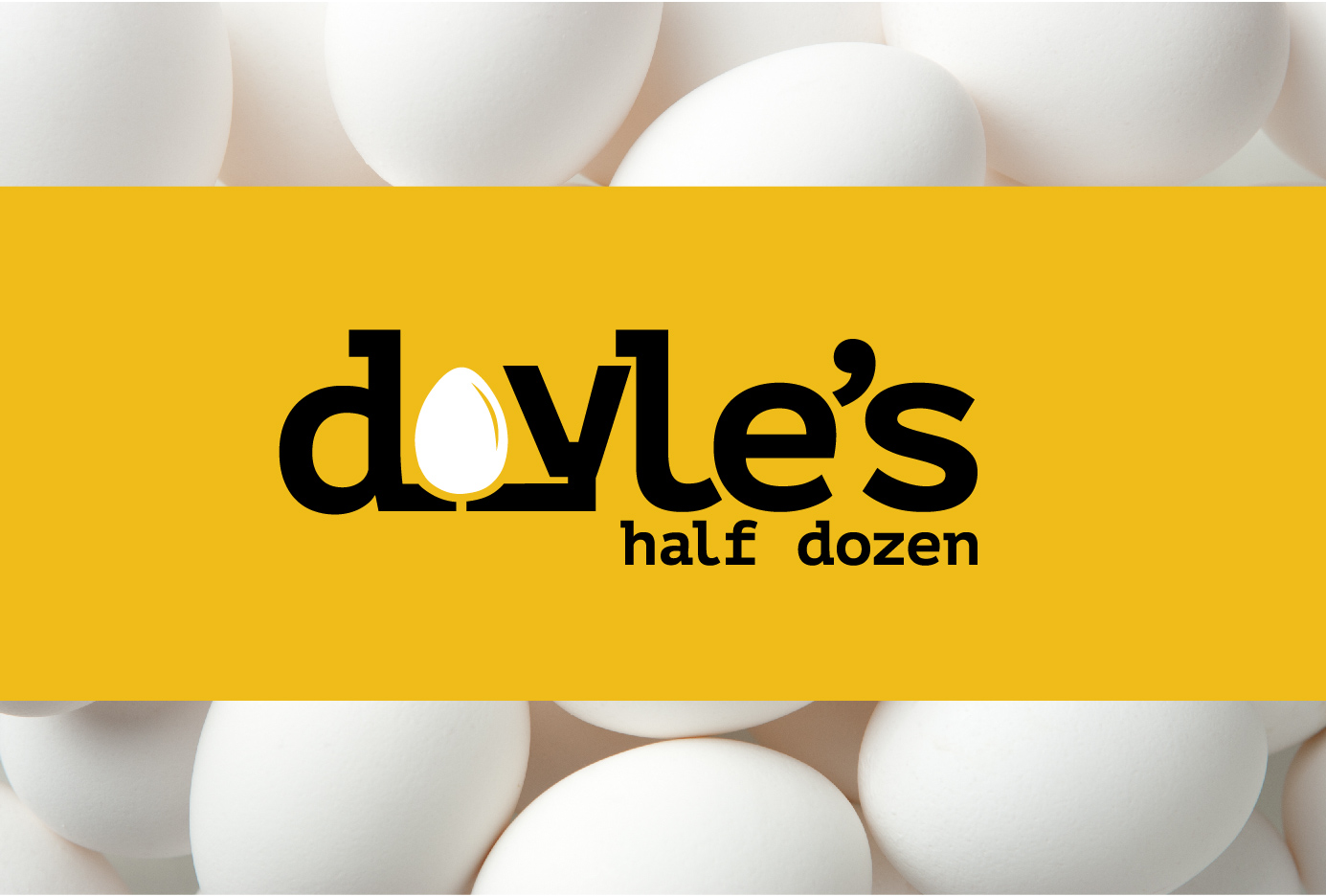
by Ryan Smith | Dec 19, 2018
“Why couldn’t we do it?”
They had done it before, and Jesus celebrated! The news of their work had even reached the ears of the king causing him to greatly fear this new rival to his authority.
Yet here, with just a silent little boy and a desperate father, their combined efforts produced…nothing.
The Gospel of Mark, chapter 9, captures a stunning scene. The disciples who mere chapters before (6:12-13) were sent out by Christ Himself – proclaiming repentance and healing the sick – now found themselves powerless before a little boy.
You may be familiar with the story. Jesus comes back, the father begs Jesus to heal his mute and seizing son. In an extremely honest moment, the father shouts, “I believe! Help my unbelief!” Jesus commands the evil spirit to leave; the boy convulses and falls still; the evil spirit is gone. Jesus takes the boy by the hand and raises him up.
We have many accounts of Jesus healing the sick and casting out evil spirits. Yet this account includes a discreet postscript between Jesus and His disciples. Alone in the house with Jesus, they sheepishly ask, “Why couldn’t we do it?”
Jesus replied, “This kind cannot be driven out by anything but prayer.” The deficiency Jesus points to is not personal prowess, but private prayer.
Interestingly, Mark doesn’t record Jesus praying before he heals the boy. Jesus directly rebukes the spirit. The spirit gives one final thrash and leaves – never to return. Why then does Jesus identify the key to success as something He does not appear at the instant to employ?
The answer is not that Jesus failed to pray at the moment, but that the disciples failed to be people of prayer, thus preparing them for the moment.
In their success as Jesus’s supposed understudies, the disciples were walking tall. The crowds grew large. The people celebrated. Heaven was bending to earth, and the disciples had a backstage pass to it all.
So why, at the height of their prominence, could the disciples not heal one little boy?
What happened to the disciples is what happens to many of us. Things start to go well. Our small group study seems vibrant. Our kids begin to behave. That sin we most struggle with appears to have relegated itself to the shadows. We are effectively leading in the church, at home and in the community. God is good. Ministry is fruitful.
In these times, it is easy to be thankful to God, yet also less-reliant upon Him. The storms that caused us to cling desperately to the Word pass and the wind slows to a quiet whistle. We thank God and begin to loosen our grip. The struggle-filled path of loving God, the church and our family starts to even out and our steps relax. We thank our Guide for His help and pack up the map.
However, God is not a sage we visit for guidance – He is the very sustenance we daily need to survive.
“Abide in me,” Jesus says in John 15. “Abide in me, and I in you. As the branch cannot bear fruit by itself, unless it abides in the vine, neither can you, unless you abide in me. I am the vine; you are the branches…apart from me you can do nothing” (John 15:4-5).
What we don’t see in Jesus’s exhortation in John 15 are the words, “when” or “if.”
The reason the disciples were powerless to cast out the demon in Mark 9 is that they had failed to abide in God through prayer. They had become branches with fruit that grew so heavy they fell from the vine and disconnected from their source.
When ministry goes well, it is easy to let our serving God replace our knowing God. Sadly, we often don’t recognize we have abandoned our power source until something goes wrong and ministry stops working. Then we turn to Jesus and ask, “Why couldn’t we do it?”
May I encourage you to remember the lesson I am so prone to forget: people of God must be people of prayer.
As Jesus reminded the disciples, the privilege of prayer is not an incantation of access, but continual nourishment at the table of God. We must pray not so that we may have success, but that we may have life. Whether God brings success or struggle is not the point. Ministry is not pragmatic. It cannot merely be measured in numbers. Ministerial “success” can be deceptive when measured by the ends and not the means.
May we first be people of prayer – then people of ministry. You alone don’t make your ministry effective, but prayer will make you effective in your ministry.
“Whoever abides in me and I in him, he it is that bears much fruit, for apart from me you can do nothing” – Jesus.

by Angela Sanders | Dec 18, 2018
“Don’t wish away time,” Grandmother used to say, so I’ve tried my very best not to.
I didn’t wish away the newlywed stage, but let conversation with Todd wander, gave laughter time to bubble up, and studied my new husband’s face until I had it memorized.
I didn’t wish away the baby stage, but rocked and sang, cooed and cuddled, and worked hard for those great big belly laughs.
I didn’t wish away childhood, but indulged our children’s silliness, asked open-ended questions, and gave them time to explore and express their imaginations.
I didn’t wish away the teen years, but gave them a chance to process, encouraged the development of their skill sets, and waited for their unique personalities to fully bloom.
I’m so thankful for Grandmother’s wisdom.
Life isn’t all roses and sunshine, though, and Todd and I have shouldered our share of strife.
Family stress. Financial strain. Career challenges. Poor health. These seasons, I did wish away—with all my heart and way too much of my mind.
Grandmother also used to say, “This too shall pass,” and, thankfully, it did.
Trouble is, by the time family stress was over, Todd and I weren’t alone anymore. By the time we experienced some financial relief, that sweet baby smell had faded. By the time certain career challenges had been hurdled, games of make-believe were just a memory, and when the shadow of illness lifted, our teens had already grown and flown.
Truth? If I could do it all over again, I would, even if it meant more suffering. This time, though, I’d fret less and trust God more so I could fully enjoy the moments I meant to treasure.
We don’t get do-over’s, friends, and tomorrow isn’t promised. Be wise.
This moment? It too shall pass.

by Emily Howsden | Dec 17, 2018
We hear the same Christmas carols, year after year, to the point where we barely have to engage our brains to recite the familiar choruses.
Most everyone has their favorite carol, and mine just happens to be “O Holy Night.”
Recently, at the Christmas chapel for the BGCO (Baptist General Convention of Oklahoma), we had the privilege of singing my favorite Christmas carol together as a form of worship.
We were encouraged to really examine the words that we so often sing without giving a second thought, and this made me all the more excited because the lyrics to “O Holy Night” are why the song is my favorite.
The lyrics are powerful and filled with a poetic Gospel presentation and reminders of what kind of people God has called us to be, a lifestyle which we should follow.
I encourage you to read the lyrics below and meditate on them for a moment…
O holy night! The stars are brightly shining,
It is the night of our dear Savior’s birth.
Long lay the world in sin and error pining,
Till He appeared and the soul felt its worth.
A thrill of hope, the weary world rejoices,
For yonder breaks a new and glorious morn.
Fall on your knees! O hear the angel voices!
O night divine, O night when Christ was born;
O night divine, O night, O night Divine.
Truly He taught us to love one another;
His law is love and His gospel is peace.
Chains shall He break for the slave is our brother;
And in His name all oppression shall cease.
Sweet hymns of joy in grateful chorus raise we,
Let all within us praise His holy name.
Christ is the Lord! O praise His Name forever,
His power and glory evermore proclaim.
His power and glory evermore proclaim.
Possibly my favorite lines of the entire song are “Long lay the world in sin and error pining, till he appeared and the soul felt its worth. A thrill of hope, the weary world rejoices, for yonder breaks a new and glorious morn.”
I feel like these lines directly apply to the world today. Long have we laid in sin and error, pining for something more.
You see it everywhere you go—in advertising, in casual conversation and perhaps even in your own dreams. We are created to want something more, but that something isn’t anything with monetary value. That something, or rather someone, is Jesus.
When He appeared for the first time, “the soul felt its worth,” and again, when He appears for the second coming, what a glorious day it will be for those who call themselves Christians when we join with Him in Heaven.
Until that day, we have “a thrill of hope,” that we should be screaming from the mountain tops. The weary world needs the hope of a Savior, who has promised us as believers eternal life. When we proclaim the Gospel to the weary world, we give them something to rejoice about, a new found hope in Him as our Lord and savior!
A new and glorious morn is coming, my friends. As we urgently flock to the stores to ensure we find just the right Christmas gift, or as we flock to our homes to make sure we are in time for the Christmas celebration, we should flock to share the good news of the Gospel to the weary world that is waiting for Good News about which they can rejoice.
I challenge you, look at the lyrics of your favorite Christmas carol and wait for God to open your eyes to a new way of life. You won’t regret it!

by Chris Doyle | Dec 14, 2018
Greetings!
I spent way too much time looking for my glasses today. Nothing can change your daily priorities quicker than searching for something you deem vital to your wellbeing.
After hours of retracing, searching, fretting and praying (yes, in that order, and I know I’m wrong for doing so), I found them under the side table next to my chair.
Thank you, Lord, for your provisions and allowing me to find my glasses at the time You wanted me to find them. I am weak, but You are strong.
Here are my thoughts on six timely topics. Thank you for reading!
- Kyler’s criticism
Kyler Murray won the Heisman Trophy last Saturday. I’m happy for the speedy quarterback who definitely is the reason the Oklahoma Sooners have been successful this year.
On Sunday, news broke about Murray tweeting derogatory words that were described as “anti-gay.” Murray was 14 or 15 when he jokingly sent these tweets to his friends. Murray is now 21.
I had no idea junior high kids had Twitter accounts six years ago. I still don’t have a Twitter account. I don’t even know exactly what Murray said, but I don’t need to know.
There’s a couple of reasons I bring this topic up. First, words apparently mean more now than they ever do. You can be held under the court of public opinion for words you said years ago, even if you are a minor.
Second, nothing is private anymore. Of course, with God, nothing ever was private, so perhaps this microscopic fish bowl life can help us realize that our words and actions always matter, regardless of where we are or the stage of life we are experiencing.
Two articles to consider are “America Is Intolerably Intolerant” by David French and “Woke Reporter Tries to Sack Heisman Winner Kyler Murray” by Michelle Malkin.
These both appear on the National Review website, but I like both articles for different reasons. French always gives a great perspective:
“Human beings need forgiveness like we need oxygen. The thing that is so shattering about the shame storm is that it is usually grounded in something a person did wrong — even if it’s a minor transgression. Even if it’s just momentary thoughtlessness. Even if it’s just a tweet.”
Malkin stresses the importance of ethics in journalism. She calls out USA Today sports writer Scott Gleeson, who broke the Murray story, saying, “Gleeson’s hit piece reeks of deceptive vigilantism, not journalism.”
I agree with Malkin that Gleeson did not even give Murray a chance to respond before breaking his story, and he appears to have held Murray’s six-year-old tweets for just such an occasion.
- Heisman hullabaloo
Oklahoman sports columnist Berry Tramel gave his thoughts about the story on Murray’s “anti-gay” tweets: “I wonder what kind of society we have become when a 14-year-old’s statements are held against him when he’s 22.”
Tramel also was critical of the people responsible for the Heisman Trophy presentation last Saturday. In his opinion piece titled, “Heisman butchering of Tua Tagovailoa’s name inexcusable,” Tramel made the same conclusion I made when I was watching announcement. I knew before Murray’s name was called that the OU quarterback had won because the presenter, Vasili Krishnamurti, botched Tagovailoa’s name when he was addressing the nominees.
Krishnamurti is a Heisman trustee, as Tramel said, and it was apparent that after a long program Saturday night, he did not pay much attention to how the prominent Alabama quarterback pronounced his last name.
“You had one job,” Tramel wrote. “You had one year to learn. You’re in a city of 10 million people, some of which are more than qualified to teach you how to pronounce a name.”
Thanks to Tramel, I learned that the Downtown Athletic Club, which sponsored the Heisman Trophy, went bankrupt years ago. Now it appears the people responsible for one of the most prestigious athletic awards in the country doesn’t seem to care about whom they are honoring.
- Compromising religious liberty
I’m pointing out two talking points made this week by Albert Mohler on his daily podcast The Briefing.
On Thursday, Mohler addressed the announcement of two evangelical organizations, Council of Christian Colleges and Universities (CCCU) and the National Organization of Evangelicals (NOE), attempting to compromise the issue of religious liberty with what has been presented as LGBT rights.
“They’re trying to find a way to encourage the federal government,” Mohler said about CCCU and NOE, “to adopt sexual orientation and gender identity protections that would not come at the violation of religious liberty. Now that sounds like the perfect deal politically, if it were possible. That sounds like a way through this cultural impasse.”
I encourage you to listen to Mohler’s comments or at least read the transcript. I agree that this is not a good move and would hinder religious liberty and those with deep convictions based on biblical teachings.
“So what is this compromise?” Mohler asked. “Is it tenable? Is it possible? The bottom line is I believe it is neither. It is not tenable, it is not possible. You can state, as many will, that it is well intended. But a well-intended mistake is still a mistake. A well-intended wound to religious liberty is still a wound. And that’s what we’re looking at here.”
- Saluting Solzhenitsyn
Aleksandr Solzhenitsyn is not well-known in today’s society, but as Mohler mentioned in today’s Briefing, Solzhenitsyn was very instrumental in the fall of the Soviet Union. Mohler’s talk is excellent, addressing the Russian native who would have turned 100 this week.
“You can understand why Solzhenitsyn came to understand atheism as inherently deadly,” Mohler said. “Christians know that all human beings are complex, but Russian history seems to produce some of the most complex characters of all.”
- Messenger printing change
We went to press this week for the final Baptist Messenger of the year. I hope you have a chance to check it out next week. We share 10 of the Messenger’s memorable moments of 2018.
Also, starting in January, the Messenger will have a different print schedule. No longer will it be printed weekly, but instead, it will be printed twice a month.
This has caused quite a stir among our readership, but we plan to keep providing the same content that we always have published. And we hope, with the changes we have made, more people will be reading it because it will be no cost to any churches affiliated with the Baptist General Convention of Oklahoma.
Also, please get the word out that anyone who has received the Messenger through their church membership WILL CONTINUE to receive the Messenger. No need to call the Messenger office. It will continue to be mailed as always.
For more information on Messenger changes in 2019 click here.
- Christmas blessings
I conclude this week’s DHD sharing the Christmas blessings I shared in 2016. They are still relevant today.

by Michael Foust | Dec 14, 2018
The animated Sony movie Spider-Man: Into the Spider-Verse (PG) opens this weekend, following the story of a new character as he steps into the role of Spider-Man.
Miles Morales is a teenage boy who simply wants to fit in at his new high school and find his place in the world.
It hasn’t been easy. He misses his old friends, his old classes and his old neighborhood. His parents moved him to the new school—which is across town and academically superior—after he passed the entrance exam and won an application lottery.
Miles, though, hates it. In fact, he’s trying to fail. Thankfully, his teachers refuse to flunk him. They want him to be prepared for life.
But nothing can prepare Miles for what is about to happen. It all started when he got a seemingly innocent spider bite. Then his hands started sticking to objects. Then he started walking on walls.
If you didn’t know better, you’d think Miles was, well, Spider-Man. Yet that role is taken.
“How could there be two Spider-Men?” he asks.
Good question.
The animated Sony movie Spider-Man: Into the Spider-Verse (PG) opens this weekend, following the story of Miles Morales as he steps into the role of Spider-Man and discovers that there are multiple “Spider People” in this “Spider Verse.” That’s because the evil villain Kingpin is creating a machine that permits travel into multiple universes so he can resurrect his wife and child. He also wants to kill every Spider-Man.
It stars Shameik Moore (The Get Down) as Miles Morales/Spider-Man; Luna Lauren Velez (MacGyver, 2017) as his mom, Rio; Hailee Steinfeld (Pitch Perfect 2) as Gwen Stacy/Spider-Woman; and Jake Johnson (Jurassic World) as Peter B. Parker.
The plot sounds complicated in print but works well on the animated big screen. At one point, there are six different Spider characters, including Spider-Ham, a pig who doubles as Peter Porker.
Spider-Man: Into the Spider-Verse has plenty of animated violence but otherwise stays mostly in the family-friendly realm. It has plenty of funny moments, too. I’m not the target audience but I did enjoy it.
Warning: minor/moderate spoilers!
(Scale key: none, minimal, moderate, extreme)
Violence/Disturbing
Moderate. It has the bloodless punching and fighting found in most live-action superhero films (that is, a lot), but it seems tamer in cartoon format. We also see someone get shot and killed. Major characters die. The movie ends—not surprisingly—with a big fight. Parents uncomfortable with the violence in Marvel and DC movies likely will find this film uncomfortable, too. It’s more violent than—for example—the Incredibles film series. It also has some scary moments, led by the shadowy villain Prowler, who looks like a masked creature from a horror flick and is accompanied by eerie music.
Sexuality/Sensuality/Nudity
None. We see one brief kiss.
Coarse Language
Minimal. One coarse word (h-ll, said by a villain) and two or so instances of “oh my gosh.” Also, one “geez.”
Other Positive Elements
Miles’s parents are good role models. His father is a police officer who isn’t afraid to express affection and tell Miles he loves him—although Miles rarely returns the favor. Miles’ teacher refuses to give up on him. When he makes a “0” on a lengthy true/false test, she gives him a 100; it’s impossible, she says, to get every answer wrong unless you already knew the right answer.
Other Stuff You Might Want To Know
We learn that Peter B. Parker—who is from another dimension—split from his wife because she wanted to have children.
Life Lessons
We learn lessons on courage (Miles), self-sacrifice (several characters, including Miles) and love for family (several characters, more on that below),
Worldview/Application
Who knew that a superhero cartoon could provide such a family-centric message? Sometimes it’s even funny, as when Miles’ policeman father drops him off at school and tells him he loves him. When Miles refuses to say “I love you” back, his father gets on the police car loudspeaker and makes Miles say “I love you”—in front of all his friends. Embarrassing? Of course. Hilarious? Yes.
Yet this family theme extends to the villains, too. Kingpin is driven by a desire to see his family, even if he wants to kill everyone in the process. Later, one of Kingpin’s henchman refuses to kill someone during a fight because they are related. Kingpin subsequently shoots the villain.
Families, of course, are one of God’s greatest gifts, created before the Fall. And long after Adam and Eve sinned, God repeated his desire to see the Earth be filled with—you guessed it—families (Gen. 9:1).
Hollywood films often include a family-centric theme. It’s nice to see it, though, in a film our kids will want to watch.
Sponsors
Get ready for Happy Meals with a Spider-Man: Into the Spider-Verse theme, because McDonald’s is a sponsor. General Mills also is a partner.
What I Liked
The story. The jokes. The family bond between Miles and his parents.
The film incorporates elements from comic books—such as speech balloons—to give it a unique feel. It works.
What I Didn’t Like
I saw the 2D version. But it sure looked like it had 3D elements in it—as if I were in the wrong theater. I wasn’t; that’s just the way it looks (Other moviegoers on Twitter reported the same issue). Some fans will love this form of animation. I found it a bit distracting.
Discussion Questions
- Was Miles’ father overbearing? Describe his parenting style in three different words.
- Why didn’t Miles want to say “I love you”? Why are we sometimes hesitant to say those words to family members? What would God want us to do?
- What did you think about the movie’s violence? Was it just the right amount … or too much? How does violence in the media impact us?
Entertainment rating: 3 out of 5 stars. Family-friendly rating: 3.5 out of 5 stars.
Rated PG for frenetic sequences of animated action violence, thematic elements, and mild language.

by Amy Frazier | Dec 13, 2018
Psalm 119:15 (ESV) “I will meditate on Your precepts and fix my eyes on Your ways.”
I had a prompting to spend some alone time with God. I remember telling my husband the night before that I was driving somewhere to be alone with God. I didn’t know where, but if kidnapped, I’ll have my “Find Friends” app on.
It was a Saturday morning, and I normally go for a run or to the gym, but this day, I took my guitar, notebook, Bible and pen, and left for the unknown. I remember driving toward Newcastle and then drifting on a turnpike, which made me panic wondering if our turnpike pass was current, so I had to call Jared at that point. Thank goodness it was, so I kept driving until I felt the Lord leading me to exit.
I somehow arrived in Lawton, by Meers, where I eventually parked in a rest area on “Lake Lawtonka.” This lake was beautiful because it was right around the Mount Scott area. In Oklahoma, Mount Scott is as mountainous as it gets for our part of the country.
As I was parking at the rest area by the lake, I noticed seven different picnic tables outlining the shore. I remember asking God for direction on where to pull over. He guided me to the highest point of the lake with an amazing view. I pulled in by the picnic table and started to unload my things. There wasn’t a soul in site for miles. It was fantastic, and I truly felt like I was alone with God.
After 30 minutes of pure bliss, I heard a car engine pulling toward my area. A man in a van rolled down his window and asked if he could fish right where I was. Before answering, I looked around at all the other picnic spots, making it completely obvious there were other spots available – seven, if I didn’t mention that before – and then said, “Well I guess you can…” I know my face at that point was in utter disgust. He delightfully smiled and started to unload his fishing equipment.
Now when I say, “fishing equipment” I mean he took out eight five-gallon buckets full of who-knows-what, with eight fishing poles and bait. This guy was serious! As I was watching him unload, I was amazed at how much he had.
He kept getting more and more supplies out of the van. A few minutes later, he was still unloading, and I am getting hotter by the minute! As he went back and forth, he was also whistling and having the time of his life, which made this worse. I finally had enough and walked off. I remember him saying, “I hope I’m not running you off….” All I could muster to say back was, “umm huh thanks…”
As I walked to my car, I was left feeling really upset. I eventually pulled in to another picnic spot, trying to get as far away from this guy as possible. When I unloaded my stuff the second time, I remember asking the Lord why this happened, especially when there were so many other spots this guy could have used.
Here is what God revealed to me. In a believer’s life we will be called to participate in what God is prompting us to do as His children. We have a choice. Are we going to follow Him? If so, we must have single vision. Distractions will happen to us and will try and keep us from pursuing what we have been called to do. If we don’t take heed to the lessons, we will fall, guaranteed.
Sometimes the only way to get rid of a distraction is to walk away from it. If we don’t walk away, we may miss what God wants us to see and hear. By staying close to the distraction, our eyes slip, and we focus on other things with no heavenly gain. Sometimes, when dealing with our distractions, just ignoring it won’t work, especially when the distraction is so strong for us. Physically leaving is sometimes the only answer.
Wow, that was so eye-opening to me. How I never want to miss or put my mind on other things besides what the Lord is doing in and around me. I don’t want to miss out on His blessings, do you?
In Gal. 5:16-17 (ESV), it says, “But I say, walk by the Spirit, and you will not gratify the desires of the flesh. For the desires of the flesh are against the Spirit, and the desires of the Spirit are against the flesh, for these are opposed to each other, to keep you from doing the things you want to do.” As I am typing this, I am thinking just how true this passage is. We are prone to our fleshly thinking, (“Prone to wonder, Lord I feel it. Prone to leave the God I love”) which always leads us in the OPPOSITE direction of where God wants to take us.
If I am not focused and growing in Christ, it delays my journey to the place God wants to take me. A classic example are the Israelites and their journey to the Promised Land. Time and time again, they walked with their fleshly desires at the forefront, while forgetting what God took them through, which caused many to never experience what God had planned for them. Their gaze was not on God but on themselves.
1 Peter 5:8 tells us that our enemy prowls around like a roaring lion and is ready to devour, so we need to be of sober-mind and watchful, as not to be entrapped by his schemes. Being alert is crucial to our success. Webster tells us that being “alert” is being quick to notice something that is “potentially” dangerous or “could be” difficult for us. If we take notice before it becomes a distraction, we can decide right then what to do about it, before it ensnares our life. In all my years of knowing God, He has warned me of many pitfalls, and prepared my heart to listen and heed His warning.
May we never take our gaze off the Lord and may He continually be our heart’s cry till He calls us home!
As always, I’m learning right there with ya!





